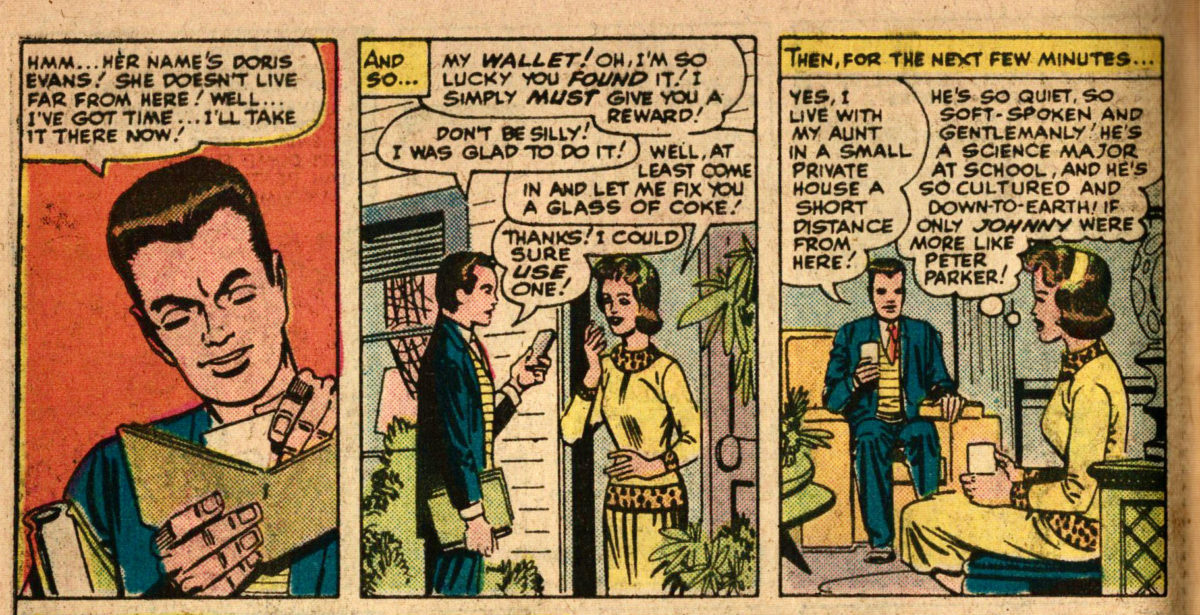Featuring: Dr. Strange
Release: March 10, 1966
Cover: June 1966
12 cents
Eerily edited by: Stan Lee
Spookily scripted by: Dennis O’Neil
Demonically drawn by: Steve Ditko
Laconically lettered by: Artie Simek
10 pages
| Previous | #510 | Next |
|---|---|---|
| Strange Tales #145 | Reading order | Tales of Suspense #77 |
| Strange Tales #145 | Strange Tales | Strange Tales #146 |
Am I a child, to be frightened by a mere illusion– a shadow of shadows?

Lee seems to have stepped away as the regular writer for the end of Ditko’s run. Just as well as Ditko has been doing most of the writing and refusing to even speak to Lee for a little while anyway.
Roy Thomas stepped in the last two issues, and now we have Dennis O’Neil. While for artists, Stan has been seeking veterans from the ’40s and ’50s, for writers, he has been giving new talent a try. Thomas is new to comics, and O’Neil was hired at his suggestion. This is O’Neil’s first comic work. He’ll go on to do some good things, and will perhaps be eventually better known for his work with the Distinguished Competition.
That Lee is handing off scripting duties to new and untested writers gives a hint as to how important these Dr. Strange stories are to him.
We meet a villain named Mr. Rasputin. He uses magical and scientific means to do espionage. His ancestor had been a famous Russian advisor.

Of course he runs afoul of Dr. Strange.
Continue reading “Strange Tales #145, Story B”



























